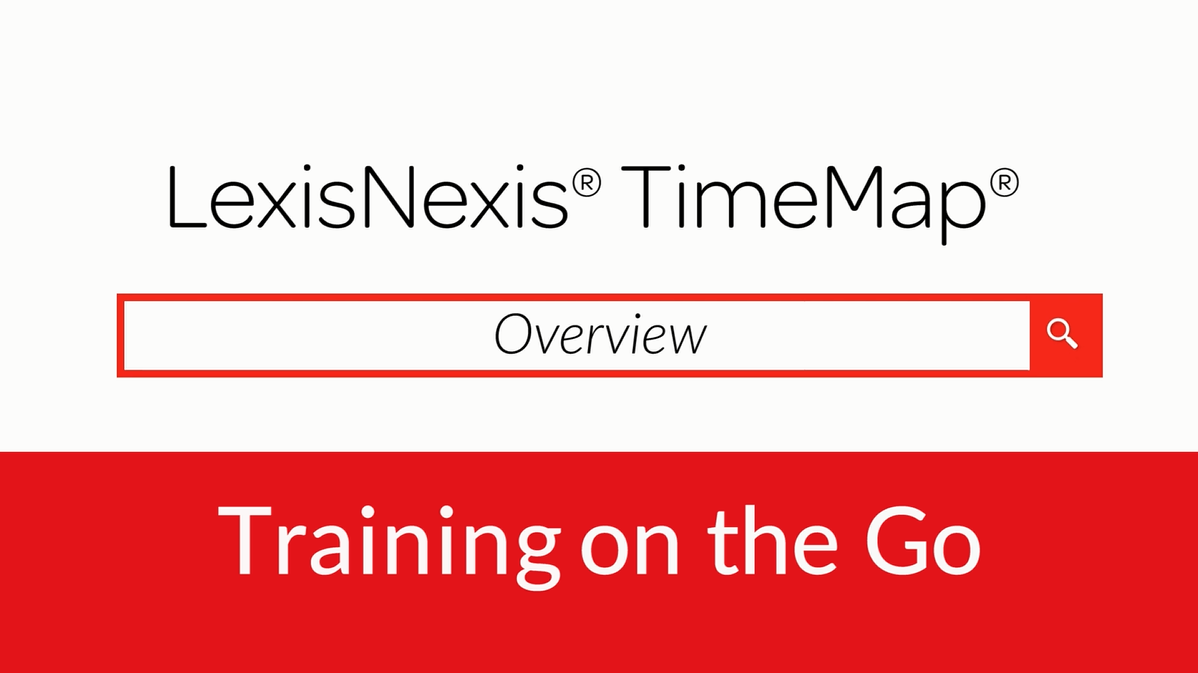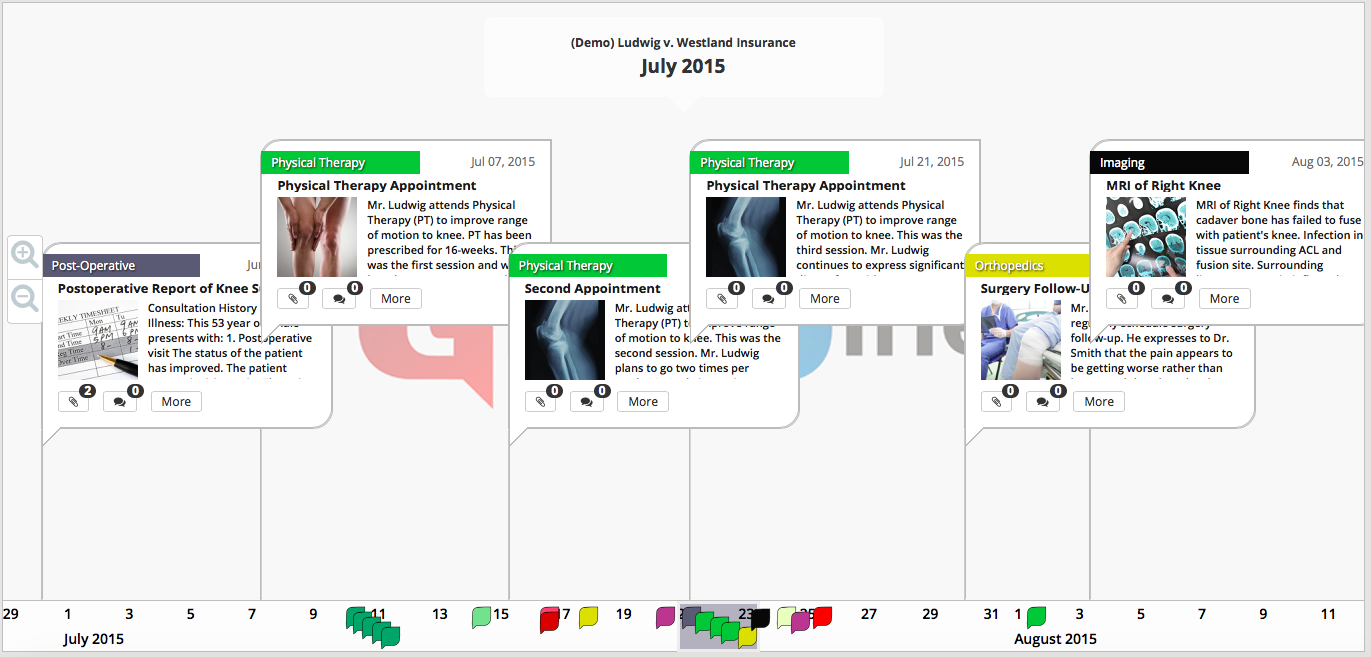
TimeMap Legal Timeline Software: Complete Buyer's Guide
Automating legal timeline creation with AI
TimeMap Legal Timeline Software is a specialized AI-driven solution for automating legal timeline creation, though its current market status requires clarification as the original TimeMap URL redirects to LexisNexis CaseMap, indicating potential integration within the broader LexisNexis legal technology platform.
Market Position & Maturity
Market Standing
TimeMap's market standing appears complicated by its relationship with LexisNexis, positioning it somewhere between independent specialized vendor and integrated platform component.
Company Maturity
Company maturity assessment benefits from the LexisNexis relationship, which provides established legal technology infrastructure and enterprise customer relationships.
Growth Trajectory
Growth trajectory indicators remain unclear due to limited public information about TimeMap's independent business metrics, customer growth, or market expansion.
Industry Recognition
Industry recognition and third-party validation were not accessible in available research materials.
Strategic Partnerships
Strategic partnerships beyond the LexisNexis relationship were not identified in research materials.
Longevity Assessment
The vendor's positioning within LexisNexis may provide stability but complicates assessment of innovation velocity and market responsiveness compared to independent vendors with transparent development roadmaps.
Proof of Capabilities
Customer Evidence
Customer evidence relies primarily on vendor-provided materials with limited independent verification.
Quantified Outcomes
Quantified outcomes include vendor claims of 70% reduction in timeline creation time and 50% increase in case handling capacity, though these metrics lack the independent customer validation found with competitors.
Case Study Analysis
Implementation evidence suggests typical deployment timelines of 3-6 months depending on existing IT infrastructure complexity and required customization levels.
Market Validation
Market validation remains limited due to restricted access to independent customer references and case studies.
Competitive Wins
Competitive positioning shows TimeMap competing within a market where specialized vendors demonstrate clearer performance validation.
Reference Customers
Reference customer accessibility presents challenges for procurement validation, as specific enterprise customers, notable implementations, and industry validation examples were not publicly available in research materials.
AI Technology
TimeMap's AI technology core focuses on automated extraction of key facts and events from legal documents to generate case timelines, utilizing specialized AI algorithms designed specifically for legal document analysis.
Architecture
Integration architecture represents a primary technical differentiator, with claimed seamless connectivity to popular legal document management systems including iManage and NetDocuments.
Primary Competitors
Primary competitors include Mary Technology with documented 72-85% time savings and Australian compliance features, DigitalOwl offering 72% time savings on medical record reviews with subscription-based models, and LogicBalls providing free tier options for budget-conscious evaluation.
Competitive Advantages
Competitive advantages potentially include the LexisNexis relationship providing ecosystem integration and established legal industry relationships, claimed legal-specific AI algorithms, and integration depth with existing document management systems.
Market Positioning
Market positioning shows TimeMap competing somewhere between specialized and platform approaches, though clear differentiation requires additional competitive analysis.
Win/Loss Scenarios
Win/loss scenarios suggest TimeMap may win with organizations requiring deep LexisNexis integration, established legal technology budgets, and resources for comprehensive implementation.
Key Features

Pros & Cons
Use Cases
Integrations
Featured In Articles
Comprehensive analysis of AI Timeline & Fact Chronology Builders for Legal/Law Firm AI Tools for Legal/Law Firm AI Tools professionals. Expert evaluation of features, pricing, and implementation.
How We Researched This Guide
About This Guide: This comprehensive analysis is based on extensive competitive intelligence and real-world implementation data from leading AI vendors. StayModern updates this guide quarterly to reflect market developments and vendor performance changes.
36+ verified sources per analysis including official documentation, customer reviews, analyst reports, and industry publications.
- • Vendor documentation & whitepapers
- • Customer testimonials & case studies
- • Third-party analyst assessments
- • Industry benchmarking reports
Standardized assessment framework across 8 key dimensions for objective comparison.
- • Technology capabilities & architecture
- • Market position & customer evidence
- • Implementation experience & support
- • Pricing value & competitive position
Research is refreshed every 90 days to capture market changes and new vendor capabilities.
- • New product releases & features
- • Market positioning changes
- • Customer feedback integration
- • Competitive landscape shifts
Every claim is source-linked with direct citations to original materials for verification.
- • Clickable citation links
- • Original source attribution
- • Date stamps for currency
- • Quality score validation
Analysis follows systematic research protocols with consistent evaluation frameworks.
- • Standardized assessment criteria
- • Multi-source verification process
- • Consistent evaluation methodology
- • Quality assurance protocols
Buyer-focused analysis with transparent methodology and factual accuracy commitment.
- • Objective comparative analysis
- • Transparent research methodology
- • Factual accuracy commitment
- • Continuous quality improvement
Quality Commitment: If you find any inaccuracies in our analysis on this page, please contact us at research@staymodern.ai. We're committed to maintaining the highest standards of research integrity and will investigate and correct any issues promptly.